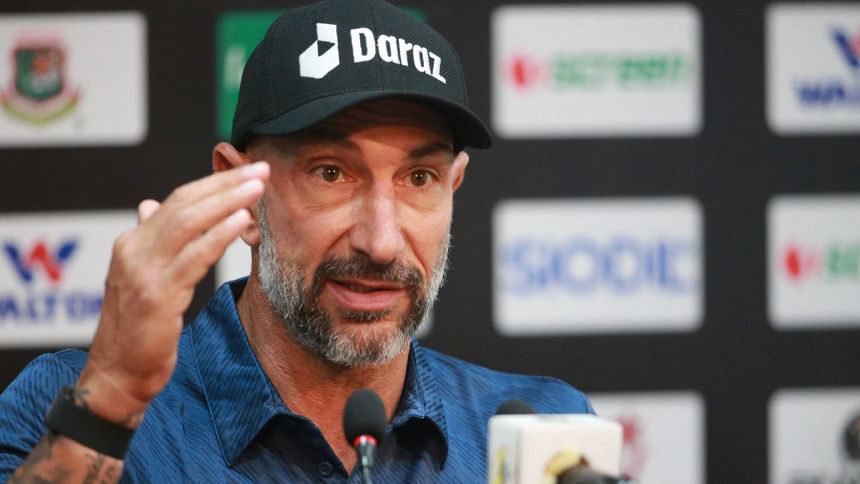Pothas cries ‘power’ crisis but gives no solutions

Bangladesh assistant coach Nic Pothas has argued that batters did not have the required power to have confidence about them that they are going to make up for deliveries they use up to get in.
The South African used West Indies as an example, almost a near-exception in terms of power-hitting capabilities.
"I think one thing you've got to acknowledge is you can't fight genetics. You have to have a genetic predisposition to power initially. I mean, we've seen what Rishad [Hossain] can do. Rishad has improved and come on since that New Zealand series to now. But power is something that takes a lot of time. If you're not predisposed to being strong; West Indians don't have to find power. They're born with power. We're not born with power, so we have to do it a different way," Pothas said at a press conference in Antigua on Sunday.
While Pothas urged for 'finding power', it is well documented that the team's batting unit has digressed in terms of application during his tenure, which started in May 2023. Given how Bangladesh batters approached match phases such as Powerplays or death overs, especially during this T20 World Cup, it is evident that Pothas, like many others in the coaching panel, has failed to prepare batters tactically for the situations they face.
In fact, when asked how to solve the 'power' crisis, Pothas ended with 'we've got to find solutions.'
Generally, Bangladesh batters take a lot longer to settle in and play their shots. In majority of the competitive sides, there are big power-hitters who accelerate the scoring rate but Bangladesh have historically struggled to find batters of that nature. It should not need another World Cup to know that these problems existed.
Bangladesh batters have also struggled immensely with shot-selection in this World Cup. If it is argued that power-hitting capabilities can help them play more calmly, power would still not help batters pick the right deliveries to hit, or which bowlers to target -- the more tactical nuances of batting.
Yet, Pothas found something new to learn from the defeats to Australia and India in the Super Eight stage.
"I think we would be making a very big error if we didn't learn and understand why there is the gap between where we are and where the top teams are," he said. "One thing that is very, very obvious throughout this tournament, if you haven't got power, you can't compete. So, it's all about power."
Pothas argued that Bangladesh have not moved forward since the 2007 World Cup. When he should be answering questions about why the likes of Liton Das or Tanzid Tamim look shaky instead of being confident in their shot-making abilities, Pothas was suggesting about what questions have to be asked.
"If Bangladesh is still doing the same thing they were doing in 2007, then it shouldn't be a surprise that they haven't moved forward. And the rest of the world has moved forward, therefore the gap has become bigger. So that's the question we need to be asking. What is different now to 2007? Not what we need to do," he said, adding 'we need to find power from somewhere.'
He argued in the same press conference that Bangladesh needed power-hitting capabilities while suggesting that one has to find a different way if they are not born with it.
It seems that it is not just batting power that Bangladesh lack; there seems to be a need for some inspired brand of coaching too.

 For all latest news, follow The Daily Star's Google News channel.
For all latest news, follow The Daily Star's Google News channel. 








Comments